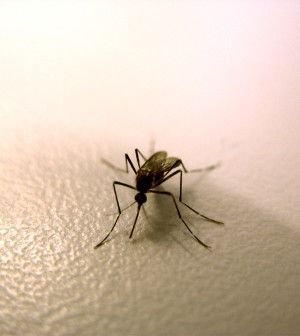- Could Your Grocery Store Meat Be Causing Recurring UTIs?
- Are You Making This Expensive Thermostat Error This Winter?
- Recognizing the Signs of Hypothyroidism
- 10 Strategies to Overcome Insomnia
- Could Artificial Sweeteners Be Aging the Brain Faster?
- Techniques for Soothing Your Nervous System
- Does the Water in Your House Smell Funny? Here’s Why
- Can a Daily Dose of Apple Cider Vinegar Actually Aid Weight Loss?
- 6 Health Beverages That Can Actually Spike Your Blood Sugar
- Treatment Options for Social Anxiety Disorder
Infection Most Likely Cause of Hospital Readmission After Surgery


Infections are the most likely reason people end up back in the hospital after surgery, a new study finds.
Of nearly 500,000 operations studied, 6 percent of the patients were readmitted for surgical complications within a month after their surgery, researchers found.
The number one complication leading to readmission was surgical wound infection, said lead researcher Dr. Karl Bilimoria, an assistant professor of surgery at Northwestern University Feinberg School of Medicine in Chicago.
“Readmissions after surgery are not due to mismanagement or poor care. They are related to well-known and well-accepted complications after surgery,” Bilimoria said.
He added that knowing why readmissions happen is the first step in reducing them.
Currently, the U.S. Centers for Medicare & Medicaid Services can penalize hospitals for excessive readmission rates. “We don’t have the answers to how to reduce this complication, but penalizing hospitals [financially] for these infections isn’t effective,” Bilimoria stressed.
The report was published Feb. 3 in the Journal of the American Medical Association.
The researchers looked at readmission rates and reasons for all operations in nearly 350 U.S. hospitals. They also looked in greater detail at six commonly performed operations that are often included in public reporting and as measures in pay-for-performance programs.
These surgeries included: weight-loss surgery (bariatric procedures); removal of all or part of the colon (colectomy or proctectomy); removal of the uterus (hysterectomy); total hip or knee replacement; stomach hernia repair (ventral hernia repair); and bypass surgery of leg arteries.
The study found that the rate of readmission for any complication after surgery ranged from less than 4 percent after hysterectomy to 15 percent after leg artery bypass surgery.
Overall, the most common reason for readmission was infection at the site of the surgery, ranging from 11 percent after bariatric surgery to 36 percent after leg artery bypass, the investigators found.
The second most common reason for readmission overall was obstruction or restriction of the normal movement of the intestine (known as “ileus”) after colectomy, proctectomy, ventral hernia repair and hysterectomy, the study authors said. However, these intestinal complications were the most common reason for readmission after weight-loss surgery.
Other causes for readmission included dehydration or nutritional deficiency, bleeding and blood clots, according to the study.
According to Bilimoria’s team, only about 2 percent of patients were readmitted for the same problem they experienced during their first hospitalization.
Readmissions, and especially surgical site infections, are a significant problem and cause a lot of pain and suffering, said Dr. Lucian Leape, an adjunct professor of health policy at the Harvard School of Public Health in Boston, and author of an accompanying journal editorial.
“While rates may not seem horrendous, the total number of patients affected is,” Leape said.
Surgical site infections occurred in about 5,500 patients in this study. But Leape noted that “the total of infections from similar operations in the country is probably 20 to 30 times higher than that: 111,000 to 167,000. Cutting that in half, which I believe is possible, would eliminate pain and suffering in tens of thousands of people every year,” he said.
To reduce these infections, Leape said that system-wide changes need to be made.
“Complications are not caused by careless or incompetent people, but by bad systems,” Leape said. “As the Institute of Medicine said 15 years ago: if you want to reduce harm, change the systems.”
Leape said that although changing systems isn’t easy, several methods have been effective. These include communication and feedback from all members of the surgical team, “learning from the best, and working in collaboratives,” he said.
“We could make substantial reductions in surgical complications, and surgical site infections in particular, if surgeons focused on the problem and learned from one another,” Leape suggested.
Bilimoria said that one way to cut hospital readmissions might be to have an outpatient clinic devoted to treating infections and other complications. “That would help keep patients out of the hospital,” he noted.
It’s also important that patients are educated before they leave the hospital about warning signs of a potential complication and instructed on how to get help. Patients can then get treatment early and hopefully avoid being readmitted, Bilimoria said.
More information
For more about surgical complications, visit the U.S. National Library of Medicine.
Source: HealthDay
Copyright © 2026 HealthDay. All rights reserved.










